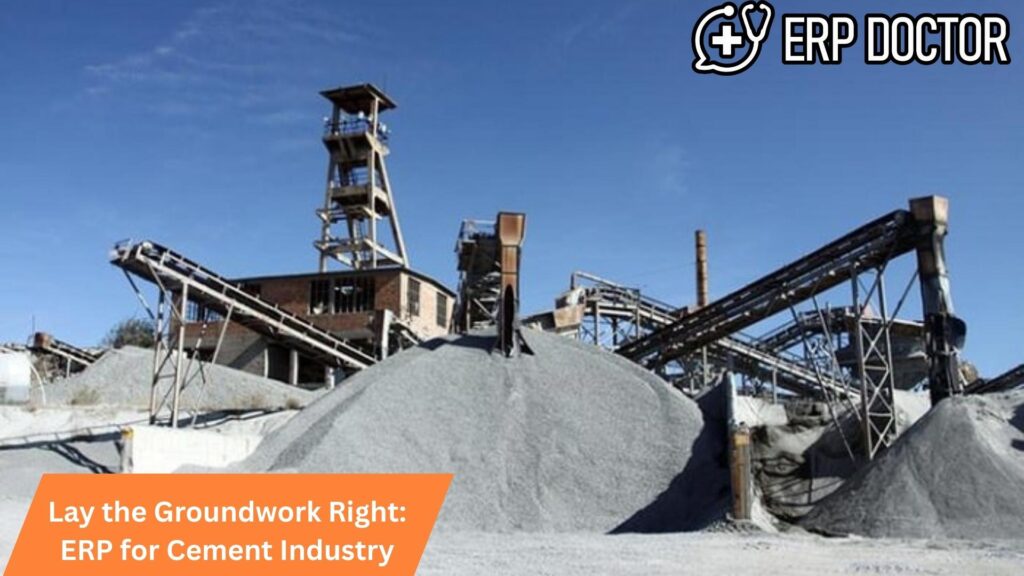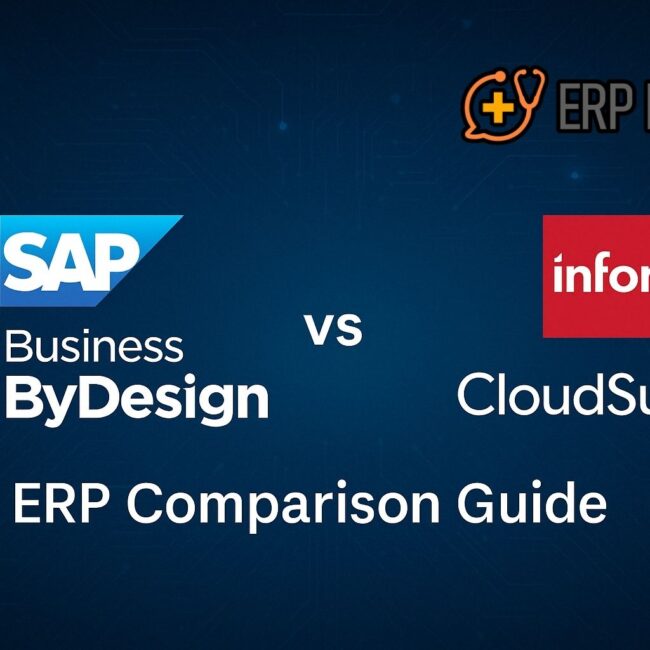
Lay the Groundwork Right: ERP for Cement Industry

Why ERP Solutions Are Essential for the Modern Cement Industry
In the cement industry, where operations are large-scale, logistics are complex, and margins are thin, traditional methods of management often fall short. This is where ERP—Enterprise Resource Planning—comes into play. Implementing the right ERP for Cement Industry is no longer optional; it’s a necessity for companies looking to stay competitive, efficient, and scalable in today’s rapidly evolving marketplace.
From raw material sourcing to dispatch, the cement production process involves multiple departments and massive volumes of data. Managing all of it manually or with siloed software systems leads to inefficiencies, delays, and costly errors. That’s where ERP Software tailored for cement operations can bring unmatched value.
The Cement Industry’s Unique Challenges
The cement industry faces distinctive operational hurdles: fluctuating raw material prices, strict compliance requirements, energy-intensive production, and complex logistics. These challenges demand industry-specific tools. General business software just doesn’t cut it. ERP Solutions for Cement Industry are designed with these hurdles in mind—offering functionality that aligns directly with production, maintenance, sales, and finance workflows.
Real-Time Visibility Across Operations
A primary advantage of using ERP Software in the cement sector is real-time visibility. With a centralized system, managers and stakeholders can monitor raw material levels, track machinery usage, evaluate production KPIs, and make instant decisions based on data.
This visibility is critical in minimizing downtime, balancing supply and demand, and responding quickly to disruptions. ERP for Cement Industry ensures transparency at every step, whether it’s production planning, inventory control, or transportation tracking.
Streamlined Inventory and Procurement
Inventory management in cement manufacturing is complex due to the high volume of materials like limestone, gypsum, and coal. Delayed procurement or overstocking can cripple operations. ERP Software provides tools for automating reorder levels, managing vendor relationships, and ensuring timely material availability.
ERP Solutions for Cement Industry allow procurement teams to forecast demand, manage supplier contracts, and streamline approvals—all within one platform. This leads to better pricing, fewer stockouts, and consistent production output.
Maintenance Management and Asset Longevity
Cement plants are machinery-heavy and prone to wear and tear. Downtime from unexpected breakdowns can be extremely costly. ERP Software comes with built-in modules for preventive maintenance and asset management. These modules schedule regular check-ups, track asset performance, and ensure equipment stays operational.
ERP for Cement Industry helps reduce downtime, extend the lifespan of machinery, and improve safety. Maintenance logs, repair history, and replacement schedules are all accessible within the system.
Financial Precision and Compliance
Managing cost-intensive operations requires precise financial planning. From fuel and labor to transportation and warehousing, costs in the cement industry are multifaceted. ERP Software offers real-time financial reporting, budgeting, and cost allocation tools that help companies stay on track.
Moreover, with increasing government regulations, ERP Solutions for Cement Industry provide built-in compliance frameworks. Whether it’s environmental reporting, tax compliance, or audit readiness, ERP makes documentation effortless and accurate.
Sales, Distribution, and Customer Management
In the B2B cement business, customer relationships and logistics are key. From order booking to delivery tracking, delays or miscommunications can lead to major client dissatisfaction. ERP Software integrates customer relationship management (CRM), order fulfillment, and invoicing into one seamless workflow.
ERP for Cement Industry empowers sales teams with up-to-date product availability, pricing, and customer history. Distributors benefit from real-time dispatch tracking, ensuring products reach clients on time, every time.
Customization and Scalability
No two cement companies are alike. Whether your operations are regional or global, your ERP Software must be flexible enough to scale and adapt. Most ERP Solutions for Cement Industry are modular—meaning you can start with the basics and expand functionality as your business grows.
From multilingual interfaces to multi-location support and cloud deployment, ERP systems offer customization that ensures long-term success and adaptability.
Sustainability and Environmental Reporting
Environmental accountability is increasingly important in cement manufacturing, a sector often scrutinized for carbon emissions. Modern ERP Software includes tools to monitor fuel consumption, waste levels, and emission metrics.
With ERP Solutions for Cement Industry, companies can generate environmental reports, monitor their carbon footprint, and make informed decisions to meet ESG (Environmental, Social, Governance) goals. This supports both legal compliance and brand reputation.
Conclusion
The cement industry’s future depends on its ability to modernize. Outdated tools and manual systems simply cannot meet the demands of today’s production scale, quality control, and customer expectations. ERP for Cement Industry brings everything—inventory, production, sales, finance, compliance, and sustainability—under one roof.
With the right ERP Software, cement companies can improve efficiency, cut costs, and gain the insights needed for strategic growth. Now is the time to lay the digital groundwork right—with ERP Solutions for Cement Industry built to last.
FAQs
1. Why is ERP critical for the cement industry?
ERP centralizes operations, improves efficiency, and offers real-time visibility for better decision-making in cement manufacturing.
2. How does ERP help manage cement production?
ERP automates scheduling, tracks raw material use, monitors machinery, and ensures streamlined production processes.
3. Can ERP Software handle multi-location cement plants?
Yes, modern ERP systems support multi-site operations and provide unified reporting across all locations.
4. What are the financial benefits of ERP in the cement industry?
ERP reduces operational costs, improves budget accuracy, and provides real-time financial data for strategic planning.
5. Does ERP Software support regulatory compliance?
Absolutely. ERP includes built-in compliance tools for taxes, safety, environmental reporting, and audits.
6. Can ERP help with cement inventory management?
Yes, ERP automates inventory tracking, sets reorder points, and reduces material wastage.
7. Is ERP scalable for growing cement businesses?
ERP systems are modular and scalable, allowing businesses to expand features as needed.
8. Does ERP support sustainability goals in cement manufacturing?
Yes, ERP tracks emissions, monitors energy use, and supports environmental compliance reporting.
9. How does ERP improve customer service in cement distribution?
ERP integrates CRM, order tracking, and dispatch systems, enhancing delivery accuracy and client satisfaction.
10. What’s the ROI of ERP for Cement Industry companies?
Companies typically see ROI within 1–2 years through cost savings, efficiency gains, and better resource utilization.







